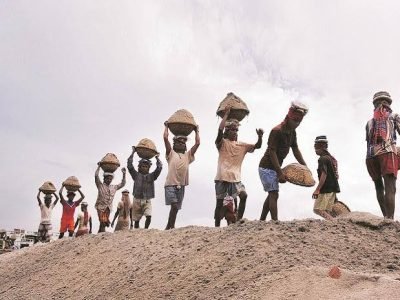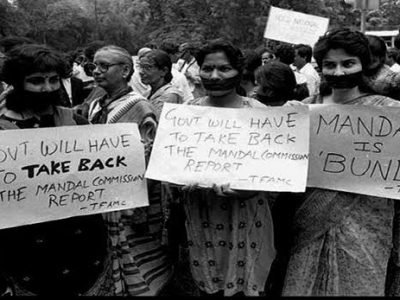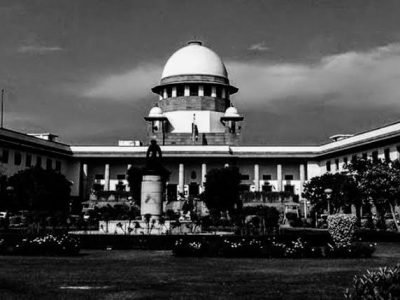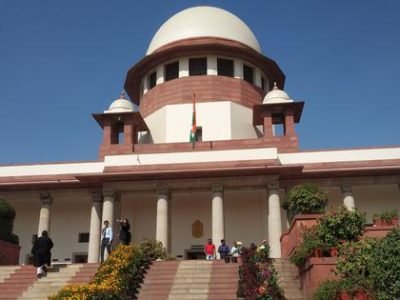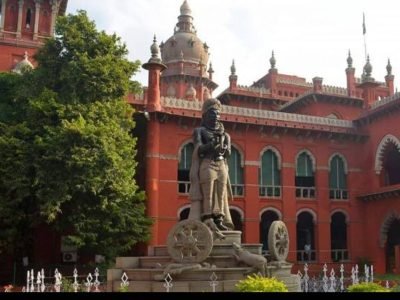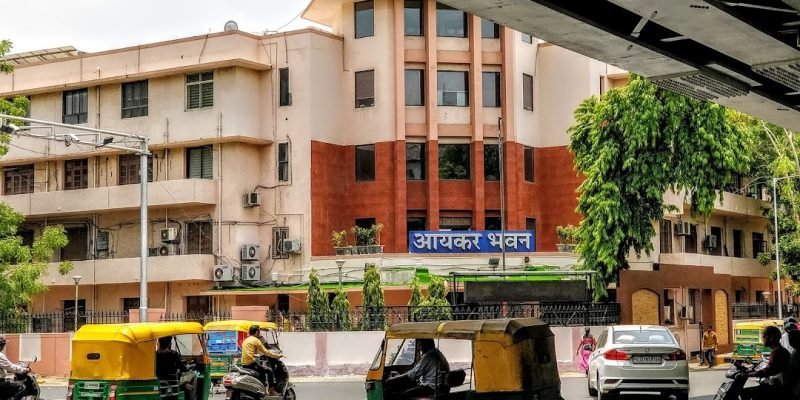
Author: Pratap J., 2nd year LL.B. student at Dayanand College of Law, Latur, Maharashtra.
Introduction
The case Hazrat Pirmohamed Shah Saheb v/s Commissioner Of Income Tax, Gujarat was decided on 25th Sep. 1964. The Gujarat High Court decided two questions under section 66(2) of Income Tax Act, 1922. Those were two questions but of the same point 1) whether the income of the assessee was exempt from tax under 4(3)(i) and 2) reference to the section 4(3)(ii). The Gujarat High Court gave judgement against the assessee and ordered to pay the tax, deciding Wakf is not a public character trust.[1]The petition was brought by certification of judgement of the High Court of Gujarat of 25th Sep. 1964 (AIR 1967 Gj 49) before the Supreme Court. Those were the civil appeals no. 118 and 122 of 1966.[2] The statutes involved were 1) Mussalman Wakf Act,1923; 2) Bombay Public Trust Act, 1950 ; 3) Income Tax Act, 1922, S.4(3)(I). The bench kept aside the judgement of Gujarat High Court by giving judgement in favour of assessee and allowed the appeal.
Essential Details of the Case
- Case Title – Hazrat Pirmohamed Shah Saheb v/s Commissioner Of Income Tax, Gujarat.
- Citation – ITR-1967-63-490
- Full Name – Civil Appeals Nos. 118 to 122 of 1966 (Appeals from the judgment and order of the Gujarat High Court dated September 25, 1964, in Income-tax Reference No. 22 of 1963)
- The Court – The Supreme Court
- Decided Case On – 27 th October, 1966
- The Court Bench – 1) J. C. SHAH, 2) J.V. RAMASWAMI, 3) V. BHARGAVA JJ.
- Petitioner – The Hazrat Pirmohamed Shah Saheb Roza Committee
- Respondent – Commissioner Of Income Tax, Gujarat.
- The Statute And Provisions – Mussalman Wakf Act,1923; Bombay Public Trust Act, 1950 ; Income Tax Act, 1922, S.4(3)(I).
Background
Pir Muhammad Shah was a Hussaini Sayyid and a well-respected Sufi who lived in Ahmedabad. He was born between 1688[3] and 1689 AD in Bijapur, and lived during the rule of Aurangzeb[4]. He protected “a sectarian doctrine” and gathered around him a large following during his lifetime. From out of his followers who were considerable in number, he initiated with 100 as his devotees and those were recognised as Murids. The Pir had a great fondness for learning with an extraordinary memory. During his lifetime, he and murids (disciples) collected a large number of manuscripts and books of academic and spiritual value. The books are kept in the “kutubkhana” (library). He, however, did not allow Murids to add others as Murids and the result was that after his death there were no further Murids. But the heirs of Murids became Murids and so the class of Murids was constituted of the heirs of the original Murids. After his death, according to his wish, he was buried right next to the hut where he was resting after preaching[5]. On death of Hazrat Pirmohamed Shah Saheb which occurred sometime between 1742 and 1750 A.D. Murids and other followers of the Pir built a mosque or Dargah or Roza to commemorate his memories. They organised Urs, other festivals, offered food to the visitors and ran Madrasas, library.
Facts of the Case –
- On the death of Hazrat Pirmohamed Shah Saheb, his followers i.e., Murids and other devotees subscribed money and collected donations with the objective of building a Roza or Dargah i.e., a Mausoleum to commemorate his memory. The Murids made several gifts of properties and other properties were also attached to the Roza properties.
- The statement of audit of receipts and expenses for the years 1942-43 to 1956-57 put before the Appellate Tribunal. It was observed that during those years some part of the extra income of the properties, after meeting the regular and usual expenditure, was also used for running madrassas, libraries and spent money on langer and bhandar for providing food to pilgrims. The Murids were using surplus income in no time for personal benefit also.[6]
- The “Roza Committee” was responsible to look after the properties of the Roza, maintain the Roza and the mosque and keep the account of expenses incurred on Urs and other functions in the Roza.
- The Mussalman Wakf Act, 1923 gave rise to litigation between the Roza Committee and the Anjuman-i-Islam. The Roza committee took the stand that the Wakf board has no right to interfere in Committee management.
- According to the Bombay Public Trusts Act, 1950, it was mandatory to register any trust under the said Act, so the Roza Committee applied for registration of the wakf to the Charity Commissioner on May 30, 1952. But the application was withdrawn on November 2, 1953.
- The Roza Committee applied a second time for registration of the wakf to the Charity Commissioner on April 28, 1955. The Assistant Charity Commissioner issued an order dated April 29, 1955, and registered the wakf as a public trust.
- In the meantime, the Income-tax Department issued notices on March 28, 1953 to the Roza Committee under section 44(1)(a) for the assessment years 1944-45 to 1948-49. The appellant did not file an income tax return under section 22 of the Income-tax Act, 1922.
- The appellant asserted that the income received from the Roza properties was exempt from tax under section 4(3)(i) of the Act.
- The appellant further appealed to the Appellate Tribunal. The Tribunal holds the view that we can not regard the class of Murids as a section of the community. Hence, they rejected that the Roza properties were under a legal obligation for a wholly charitable purpose. The Tribunal decided that the Roza properties were wakf properties and those were considered under a legal obligation for a private religious purpose and not for a public religious purpose. So the Tribunal rejected the claim of the appellant for exemption from taxation under section 4(3)(i)of the Act.
- The High court decided both the questions against the appellant, in the opinion that the evidence indicated the purpose of the wakf was not proved to be a wholly religious purpose on the basis of maintenance of madrassas and the library.
- The High court pointed out that the class of Murids did not make a section of the society so as to satisfy the test of public benefit involved in a public purpose, but was only a fluctuating body of private individuals and, hence, rejected the claim for exemption on the basis that the wakf was for a charitable purpose.
- The appeals appeared in the Apex Court by certificate from the judgment of the High Court of Gujarat, dated September 25, 1964, in Income-tax Reference No. 22 of 1963.
Issues Raised
- Whether the properties belonging to Hazrat PirMohamed Shah Saheb Roza Committee are held under trust or other legal obligation for public, religious or charitable objects ?
- Whether an exemption of the income from the wakf properties for the years 1944-45 to 1948-49 is permitted under section 4(3)(i) and/or 4(3)(ii) of the Indian Income-tax Ac ?”
Argument from the Petitioners
From the appellant side an argument was presented that the class of Murids constituted an accountable section of the Sunni Bohra community and the income out of the Roza properties was exempt from assessment on the basis that the Roza properties were decided under a legal obligation for a complete charitable purpose.
Argument from the Respondents
The opposite argument was put forward in behalf of the respondent that
- The class of Murids did not institute a section of the community but was merely a changing body of private persons.
- To support this argument a reference was mentioned about the decision taken by the House of Lords in Oppenheim V/s. Tobacco Securities Trust Co. Ltd.
- Another one reference was made to a later decision in Mohamed Falil Abdul Caffoor and Others (Trustees of the Abdul Caffoor Trust) V/s. V/s. Commissioner of Income tax, Colombo. By arguing that it was a family trust and not a public trust and the income was accordingly not entitled to the exemption claimed by the appellant.
Judgement held
By considering the facts found by the Appellate Tribunal, the bench opinionated that (a) the Wakf properties were held for a wholly religious purpose of a charitable character and (b) therefore the income of the Roza properties was exempt from assessment under section 4(3)(i) of the Act.
The bench held that the Judgement of the High court must be kept aside and the questions referred to the High court must be answered in the affirmative and in favour of the assessee.
Judgement Reasoning
- Findings of the Tribunal – The Appellate Tribunal explicitly examined this question and found –
(i) The wakf was for a wholly religious purpose – in support of this finding, the Appellate Tribunal did not find any other purpose than religious before the year 1942-43 so, the bench held that the main purpose of the wakf is mainly religious and look after the maintenance of the institutions, the observance of festive occasion therefore the wakf was established for a wholly religious purpose. It was noticed that, according to Islamic doctrine, no muslim should be restricted to access to Roza and the mosque, whether Murids or non-Murids.
(ii) Another reasoning based on the reference made to the audit of the years 1942-43 to 1956-57 put before the Appellate Tribunal. Some part of the extra income of the properties was also used for running madrassas, libraries and for langar and bhandara for serving food to pilgrims attending the Roza and the mosque on festivals. This function was considered as a charitable character of the wakf and, hence, it is a public trust.
- High Court’s Interference – The bench cleared and rejected the interference of the High court in the finding of the Tribunal as it had no jurisdiction on this point but the question of what was the object of the wakf is essentially a question of fact.
(i) The Apex Court referred to its previous judgement, in India Cements Ltd. v. Commissioner of Income-tax that in a reference under section 66 of the Act, the High Court can not take suo moto as it is not allowed to the High Court to reopen the findings of fact. The appellant must challenge those findings first by an application under section 66(1) of the Act, therefore, the High Court must accept the fact made by the Appellate Tribunal. If he has not filed an application to raise the question, he has no right to appeal before the High Court.
(ii) Another reference was given to stop the High Court from interfering, in Commissioner of Income-tax v. M.Ganapathi Mudaliar, even though the question related to the existence of material fact related to the findings of Appellate Tribunal was referred to the High Court , the High Court has no power to act as an appellate court and consider whether the finding was justified or not.
Critical Analysis
The judgement of the Hon’ble Supreme Court is based on the findings of the Appellate Tribunal that the main purpose of the Roza committee was only religious purpose of a public character by availing religious services and facilities to all people irrespectively Murids or non-Murids, Muslims or non-muslims on the occasion of Urs, Death Anniversary etc. But it was not considered the findings of the Tribunal that the surplus income from the Roza properties was used in no time for the personal use of Murids.
If it is for the religious purpose of a public nature, then how the excess money was used by Murids for themselves? Was there any mechanism or system to monitor or observe the use of income or gifts? The answer is yes but not effective as well as insufficient laws in india. The excess money or funds or gifts may be used for personal purpose or other reasons or misused. If such money was used by Murids, then how could it be exempted from Income Tax?
The far reaching effect of the judgement was that many religious institutions and so called (Godmen and Godwomen) messengers of God emerged and established their empire. Many Darghas, Wakf Boards, Temple Trusts, Ashrams and Mathas emerged and ran to get benefit of the law and hide their earnings. These religious institutions increased their earnings and properties in billions. The common function of the godmen or godwomen is to damage the economy by illegale conversion of so-called “black money” to “white money.”[7] They have good relations with crooked legislators, corrupt executives to get tax evasion and approval for their goods and services. In return, they use black money of such people to make it white and for money laundering. They get the advantages of loopholes of Indian trust law. Section 11(5) of Income Tax Act prohibits a trust from using trust income or property to benefit large donors, this rule can not be applied to anonymous donations or trust can purchase a property or build it for charity or but it allows to collect rent from the tenant. The origin of anonymous donation is suspicious so that makes white money. [8]
As per a study, more than 85% people have faith in religion and religious institutions.[9]There are a number of devotees and pilgrims who offer money or gifts to a Mosque or a Dargah or a Temple or a religious institution and other income from these institutions.[10]This creates a parallel economy[11] if we consider all religious institutions and all exempted money from Income Tax for charitable purposes. There are statutes that compel every trust to utilise their income for the public purposes but very few trusts follow it and others show their activities on paper only. Less than 15% of the religious institutions or trusts can be used for the specified “purpose” and remaining 85% income of the trust can be spent on any “purpose” because there is no such a limit on expenditure to the religious trusts.[12] There are thousands of charitable trusts and wakfs registered under the Mussalman Wakf Act in 1923 and the Bombay Public Trusts Act, 1950. These institutions could have saved the lives of people and helped people during covid -19 pandemic. But very few showed charitable character of the trust by providing medical facilities, food for the unemployed and labourers during the pandemic.[13] The government appealed to all religious leaders to support corona warriors and to fight against covid-19.[14] It is an irony that most of the trust and religious institutions neglected their purpose to serve humanity and endangered lives of people by not following government orders[15]only for their income.
The Apex court barred the High Court from interfering in the Tribunal’s finding stating that it was beyond the High Court’s jurisdiction. As per section 27 and 28 of Indian Tribunal Act,1985 that no other court except the Supreme Court allows to interfere in Tribunals issues and orders.[16] Article 136 of The Constitution of India powers to the Apex Court to hear plea regarding Tribunal’s order with the special leave petition [17], only the Supreme Court has power of jurisdiction over Tribunal Order. The High Court can not reopen the Tribunal case itself until it was appealed for the same by the appellant as well and the High Court was not the Appellate Court.[18] But The Apex Court should have considered the High Court’s view for giving directions to the religious institutions. The case was decided keeping aside the High Court’s Judgement and held that Roza properties were wholly religious purposes of public character and it was exempted from Income Tax.
References
[1] Indian kanoon, https://indiankanoon.org/doc/1711352/?type=print
[2] Juris The Laws, www.the-laws.com
[3] Jaimin Rathod, Discover one of the oldest libraries of Ahmedabad, Apri. 10, 2016, https://creativeyatra.com/culture/one-of-the-oldest-library-of-ahmedabad-a-discovery/.
[4] Ibid.
[5] Supra note 15.
[6] Indian Kanoon, https://indiankanoon.org/doc/1358355/
[7] Disha Verma, Godmen or Conmen? How India’s Religious Trust Laws Facilitate Money Laundering Empires, GAB (Jul. 22, 2020), https://globalanticorruptionblog.com/2020/07/22/godmen-or-conmen-how-indias-religious-trust-laws-facilitate-money-laundering-empires/
[8] Supra note 20.
[9] Shahid Akhter, Organised religion can play a crucial role in helping tackle COVID-19, Down to Earth (Apr. 30, 2020), https://www.downtoearth.org.in/blog/health/organised-religion-can-play-a-crucial-role-in-helping-tackle-covid-19-70811.
[10] Haji Ali dargah’s earnings from mobile towers: Mumbai court tells state to maintain status quo, Hindusthan Times (May 25, 2017, 9.29 am.), https://www.hindustantimes.com/mumbai-news/haji-ali-dargah-s-earnings-from-mobile-towers-mumbai-court-tells-state-to-maintain-status-quo/story-8tPHuSqrhUa0Z6GxwWhm9L.html.
[11] Neha Dewan, Purva Bhatia & Surbhi Goel, TNN, Religion : Huge money spinner in India, The Economic Times ( Apr. 20, 2008, 6.40 pm.), https://economictimes.indiatimes.com/special-report/religion-huge-money-spinner-in-india/articleshow/2964677.cms.
[12] Supra note 21.
[13] Mint, Humanity over hate: Religious organisations help out with covid-19 (Apr. 16, 2020, 6.39 pm.), https://www.livemint.com/mint-lounge/business-of-life/humanity-over-hate-religious-organizations-help-out-with-covid-19-relief-11587041257785.html.
[14] World Health Organisation, South-East Asia, Mumbai, May 22,2020, https://www.who.int/india/news/detail/22-05-2020-faith-based-organizations-across-india-step-up-the-fight-against-covid19.
[15] How faith communities are responding to the coronavirus pandemic, The Conversation (Apr. 10, 2020, 01:51 am.), https://theconversation.com/how-faith-communities-are-responding-to-the-coronavirus-pandemic-135281.
[16] The Indian Tribunal Act,1985, Ch. IV & V, Sec. 27, Sec.28
[17] The Constitution Of India, 1949, Part V, Ch. IV, Art. 136.
[18] Supra note 29.


